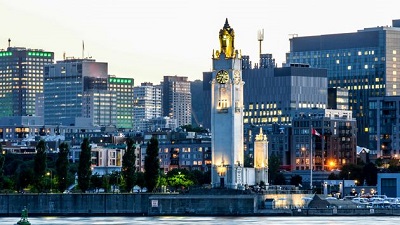 Friday, July 26, 2024
Friday, July 26, 2024  Friday, July 26, 2024
Friday, July 26, 2024 
As reported on Huffingtonpost.ca, as Toronto and Vancouver struggle to keep housing affordable for anyone but the wealthy, Montreal says its new, first-on-the-continent development model will help it succeed where other big cities have failed.
Montreal led big Canadian cities in 2018 with economic growth of almost 3 per cent, while its real estate market outperformed Toronto and Vancouver’s for the first time since 1998.
As home prices continue to climb, the city is getting ready to table a bylaw this month requiring condo developers to build a certain number of off-market units for every shiny new residential tower they want to erect.
The city promised the new rules will be flexible enough so as to not stymie the building boom, but developers are worried Mayor Valerie Plante’s administration will make future projects unprofitable.
“It will be a first in North America,” Robert Beaudry, city councillor for economic development and housing, said about the new policy. “It was fundamental for us to be pioneers … We will deliver and I am convinced it will inspire other big cities across the country.”
The city had initially planned to table its new policy months ago but negotiations with developers have taken longer than anticipated. Plante remains undaunted, however, and is determined to go ahead with her major campaign promise to increase housing affordability.
Montreal’s rules are being introduced to help people like Richard Martin, a 54-year-old man who was paying almost 85 per cent of his monthly welfare check on a $495-per-month apartment before he moved into social housing in January 2017.
“I used to have to go to a food bank every month,” Martin said in an interview at his community housing centre in the city’s east end.
Now his rent is subsidized 75 per cent, primarily by the provincial government. He lives in a new co-operative housing project where all the residents are co-owners and manage the building together.
Paying 85 per cent of his monthly income was unsustainable for Martin, who remains on welfare. But that is the reality in Vancouver, according to RBC Economics in its March 2019 housing report.
Vancouver’s housing prices increased so dramatically in such a short time the provincial government slapped a 15 per cent foreign-buyers’ tax in 2016 — but the measure has not solved the problem. RBC’s research revealed home resales in the city have dropped 58 per cent since early 2016 but home ownership costs still represent 85 per cent of the average household income.
In Toronto — where a provincial foreign buyers’ tax was instituted at the end of 2017 — the average-income household spends 66 per cent of revenues on housing costs. Montreal is still far behind — the percentage is 44.5, according to RBC.
Plante’s policy would apply to residential towers containing a yet-to-be-determined number of units, said Beaudry, who wouldn’t give too many details because of ongoing negotiations. But Plante had campaigned on a promise known as “20-20-20.”
Keep reading on Huffingtonpost.ca
Watch the video and learn more about Construction Links Network – the peer-to-peer network sharing platform for the construction, building and design community.
Ideal for YOUR Press Releases | Project Updates | New Appointments | Awards & Milestones | Company News | New Products/Services | Brochures | Videos | Infographics | Blog Sharing | Events and More